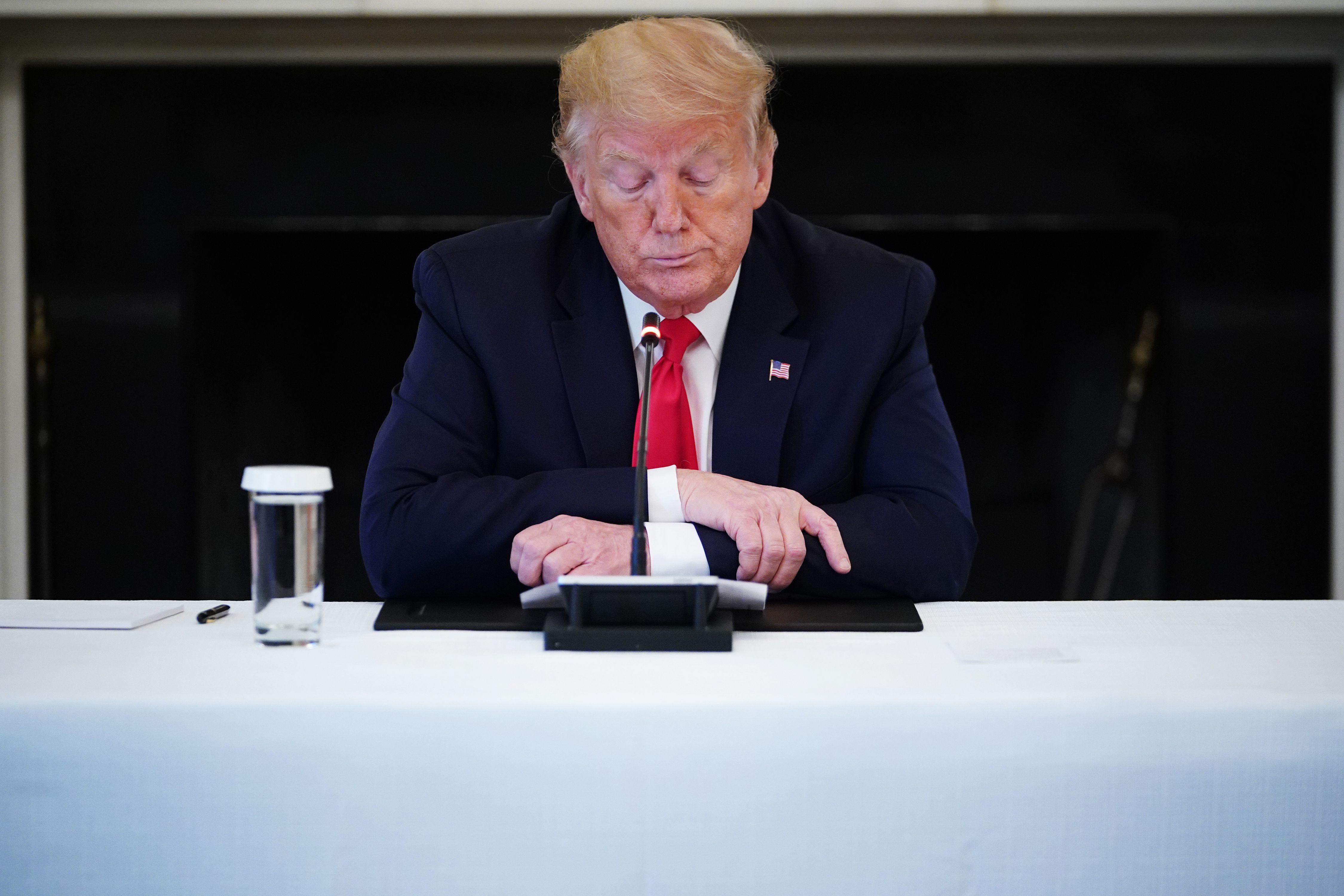The post-virus economy
How long will it take the U.S. economy to recover from the pandemic?

A free daily email with the biggest news stories of the day – and the best features from TheWeek.com
You are now subscribed
Your newsletter sign-up was successful
The smartest insight and analysis, from all perspectives, rounded up from around the web:
Don't bet on a sharp and quick recovery for the economy, said Andy Kessler at The Wall Street Journal. At the beginning of the crisis, many hoped that the post-virus economy would still "take off like a rocket ship," in the words of President Trump. Economists and pundits came to call that a "V-shaped recovery" — meaning a sharp plunge, then a rapid return. Maybe if "we'd had a two-week house arrest — three, at max" that could have happened. But with 26 million unemployment claims, "we've clearly fallen off a cliff." Now many economists think we are in for something more like a U, with a slower ascent, and maybe a "long time underwater." My expectation is a little different. I foresee a short bounce, as we've already seen in the stock market. But then we are in for "a flatline, with zero to 2 percent GDP growth until the damage is assessed and the debt dominoes start to clear."
Anyone who still thinks a V-shaped recovery is possible isn't paying attention, said Desmond Lachman at The Bulwark. The world economy and financial markets are still "stalked by structural risks," particularly from Europe, which is on the verge of another sovereign debt crisis, with GDP potentially shrinking 10 percent. In China, "the main engine of the world economy," the pandemic has set off a wave of "household and corporate bankruptcies." The "unsynchronized and partial reopening" of some businesses in the United States doesn't help, said Mohamed El-Erian at Bloomberg. It "does little to move the economic needle, especially as some individuals and companies stay on the sidelines, interstate mobility is restricted, and the global economy remains disrupted." Meanwhile, it increases the risk of more infections, and a whole new round of lockdowns.
The Week
Escape your echo chamber. Get the facts behind the news, plus analysis from multiple perspectives.

Sign up for The Week's Free Newsletters
From our morning news briefing to a weekly Good News Newsletter, get the best of The Week delivered directly to your inbox.
From our morning news briefing to a weekly Good News Newsletter, get the best of The Week delivered directly to your inbox.
Yes, it's still early, said Conor Sen at Bloomberg, but if you look around you'll see signs of improvement. Americans are already "getting more comfortable with wearing masks" and going out more; gasoline demand rose last week for the first time since the shutdowns, as did the number of travelers passing through airport security checkpoints. The resilience of global supply networks also points to a strong recovery, said Salvatore Babones at Foreign Policy. "No one in the world has been denied the opportunity to buy a car or a phone due to production problems." When the pandemic closed Chinese suppliers in February, "pundits predicted that global auto production would grind to a halt." It didn't. Asian automakers closed some plants for a few days; Tesla "shut its California factory only after government orders, not because of any lack of parts."
What is the stock market telling us? asked Michael Santoli at CNBC. Thanks largely to help from the Federal Reserve, the S&P 500 index is up 29 percent from its low a month ago and just 16 percent off its record high, despite mass layoffs, zero earnings, and an oil shock. But if the market were really expecting "a roaring economic revival," one would expect "early cycle" groups "like autos, banks, consumer durable goods, and retail to lead the market." Instead, it's Amazon, health-care stocks, and consumer staples like Campbell's soup "holding things together" — a sign that the economy hasn't yet begun "the healing process."
This article was first published in the latest issue of The Week magazine. If you want to read more like it, you can try six risk-free issues of the magazine here.
A free daily email with the biggest news stories of the day – and the best features from TheWeek.com
-
 6 of the world’s most accessible destinations
6 of the world’s most accessible destinationsThe Week Recommends Experience all of Berlin, Singapore and Sydney
-
 How the FCC’s ‘equal time’ rule works
How the FCC’s ‘equal time’ rule worksIn the Spotlight The law is at the heart of the Colbert-CBS conflict
-
 What is the endgame in the DHS shutdown?
What is the endgame in the DHS shutdown?Today’s Big Question Democrats want to rein in ICE’s immigration crackdown